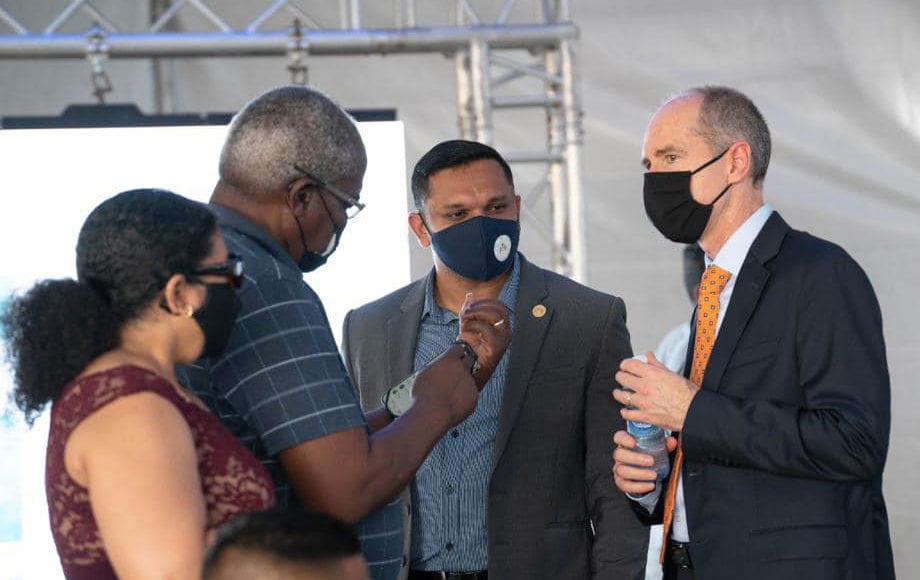ExxonMobil says it truly believes that building local capacity will play a key role in maximising benefits to the people of Guyana and fully supports a pragmatic and collaborative approach aimed at achieving this objective.
“This year, we have participated in consultations with the Government and members of the private sector regarding local content legislation,” President of ExxonMobil Guyana, Alistair Routledge, said in a note to stakeholders. “We truly believe that building local content plays a key role in maximizing the benefits of oil and gas for the Guyanese people.”
Routledge said from the company’s experience in countries around the world, it has learned that successfully growing local content while avoiding unintended consequences requires a pragmatic and collaborative approach.
“Focusing on education and training is essential to growing sustainable local capacity and capability that will enable Guyanese to benefit from development of their natural resources today and long after oil and gas production has ended,” he said.
The company along with co-venturers Hess and CNOOC has found around 10 billion barrels of oil equivalent at the Stabroek Block offshore Guyana since 2015 and is looking to develop these hydrocarbon resources over a series of projects that will see production surpassing 1 million barrels per day by 2027.
“As consultations begin again towards preparing local content legislation, we will continue to support efforts to generate broad and sustainable economic development for Guyana,” Routledge said. “Targets can be motivational but have to be founded on current realities and designed to drive real local content development.”
Guyanese authorities have been actively moving to present a local content bill to the country’s National Assembly by the end of the year that would form the basis for the introduction of legislation that would guide how companies operate going forward.
The latest draft document proposes that Guyanese should be utilized in 152 oil sector services with increased participation levels over a period of three to 10 years.
While some of these targets may be achievable and could benefit local industries and create good jobs, concerns remain about others that are at odds with Guyana’s current capabilities. Targets for front-end engineering and design (FEED) for deep-water offshore facilities, for example, start at 10 percent and rise rapidly to 50 percent within five years. Currently, there is no company in Guyana that can do this kind of highly specialised technical work.
Jerry Haar, professor of international business at Florida International University and a global fellow of the Woodrow Wilson Center in Washington, D.C. told OilNOW in a recent interview that instead of broad goals, numerical targets can sometimes put undue pressure on companies to use shortcuts.
“In the case of Guyana, hard targets may put unreasonable pressure on companies to cut corners and produce shoddy work, perhaps even endangering the lives of workers, while producing conflict among and between companies, the government, and civil society when targets are not met,” Haar said.
He said all stakeholders collaborating to discuss and formulate realistic and measurable goals could have a positive outcome as in Brazil which resulted in the creation of 875,000 jobs and $14 billion in domestic purchases.
Nevertheless, Haar said oil companies, in general, need to embrace even further the concept of shared value—the notion of a win-win situation for both the oil company and local suppliers.
“This could include training, mentoring, apprenticeships, internships and any other form of skill transfer and skill development,” he pointed out.
Guyanese authorities have said the ultimate objective is to ensure benefits to the country and its people are maximised while taking into consideration the current constraints that limit capacity in some areas.



